Natural Disaster (Book 3): Storm Read online
Page 2
But that would have to wait until she visited Jim. She’d take him some of the daffodils from the side border. He’d probably not notice them—truth be told, he probably wouldn’t have noticed until she mentioned it even before the Alzheimer’s—but she’d feel slightly better for brightening up his room.
Sometimes, dealing with Jim’s troubles, that was the best she could expect, making herself feel slightly less guilty. She cut her daffodil bouquet last thing before hopping in the car and driving to the nursing home.
Edgewood Manor Care Facility was on the southwest side of town, a few blocks south of the high school. The first night he had been put in there—no, be honest, that she had put him in there—a Friday in November, she had leaned her head against the glass of his one window and heard the distant cheers from the football game. She had stayed up in a chair watching him until he fell asleep that night, fully realizing only as she got up to leave him that they’d never sleep in the same bed again.
So many little heartbreaks came in a lifetime. The more Jim slipped away from her, the more there would be.
Today, as she walked across the home’s parking lot, there was no sound but the occasional swish of tires on the quiet side street and a raucous cardinal calling out his territorial rights from a pin oak on the front lawn. The air was thick with humidity, and by the time she was opening the front door, she was tacky with perspiration.
The receptionist, familiar with Sherryl’s daily visits, barely glanced at her as she walked through the lobby. Sherryl took the first left turn, right again through double doors, which were locked at night, past an old woman leaning on a walker in her doorway, querulously disagreeing with a nurse, and went almost all the way down the hall.
She paused at the door to his room, took a deep breath to gather herself, and strode in. “Good morning, dear,” she said cheerfully, moving to drop a kiss on his cheek. “It’s Sherryl.” He looked at her blankly. “Your wife,” she said in a softer tone.
“I know that,” he said, frowning at her as if she were the one with brain problems.
“I brought you some flowers from our garden. You remember when we planted all the bulbs that one fall—what was it, eight years ago? You tilled, I planted.”
“Because I kept planting them upside down,” he said.
“That’s right.” She felt her smile relax, become real. “I made you stick to digging after that.”
“Pointy ends up,” he said.
She nodded. “Just so.” She showed him the flowers again. “I’m going to put these in water for you, okay?”
She had turned to the dresser that held the vase when he said, “Sherryl?”
“Yes, my love?” She turned her head toward him.
“When did you get so old?”
Her breath caught. “I don’t know, Jim. I wonder that myself every time I look in the mirror.” She turned her back on him. “I’ll be right back.”
She went into the private bathroom, shut the door without locking it, and stared at her face in the mirror. He was right—she was old. In his mind, he must think of her at a different age, perhaps thirty-three, when they met, three years after her divorce when she was certain she’d never remarry. Hell, in the years between Richard and Jim, she hadn’t even let a man stay overnight. Or maybe Jim saw her at forty, or at fifty. Of course, she often thought of herself as that young—or younger.
Do people change all that much between eighteen and eighty? Some days, she thought not. Oh sure, you learn more. And as your sex hormones fade, you quit acting so stupidly to attract people, and you gain patience.
And you can get sick.
Like Jim, you can get the worst kind of sick.
Or maybe not the worst—there were diseases even more awful than Alzheimer’s—but bad enough. He still had some good days among the bad days. She wondered which it would be today.
“And for which of us do you mean?” she asked her reflection. Truth was, his good days—the days when he knew where and when he was—were good days for her, but bad ones for him. He hated being like this, and when he had those “good” days, he understood what he had become. So they were bad days for him.
“Quit being selfish,” she said to herself, and she set about arranging the flowers for the room where her husband was going to die. Not today—maybe no time soon—but one day.
*
Malika Landers took a deep breath, told her heart to quit beating so fast, and looked out over the classroom of fellow seniors.
Imagine them naked.
Eww. No, that wouldn’t work. Who came up with that awful advice?
She squared her shoulders and began. “The principle reasons behind the Spanish-American War.” Her title. The slackers in the back row fidgeted. Losers. They were going nowhere. She pushed her gaze to the front row, where the good students waited for her to go on.
“Four contributing factors brought the United States into the war in 1898,” she said, not even glancing at her notes. She went on, occasionally shifting her gaze to Mr. Shimmer, the history teacher. She had to begin glancing at her notes as she got past the introduction she’d memorized, but she kept her back straight and maintained eye contact with her audience most of the time.
Vary your timbre.
She felt inside for the rhythms she had taken in from years of listening to a great preacher, toned them down by about half, and finished her speech, only a minute over the assigned time. Sarah Milligan, in the first row, gave an approving nod.
Mr. Shimmer stood and said, “Excellent work, as always, Malika. Who’s next?”
Sarah’s hand shot up, as did Jake Bradley’s. Jake wasn’t good in some classes, but he loved history and, along with Malika and Sarah, set the curve for the class. Unlike Sarah and Malika, he didn’t care at all that he did.
I can’t dislike Sarah, because she’s too nice, but I’d sure like to beat her out in class ranking. And Jake’s not my competition anywhere but here.
She listened to Jake’s presentation on the anti-war movement of the end of the 19th century. His speech had—what would you call it—scope, that’s the word, Malika thought. He connected things well, reached out to religion and politics and back in time to the Civil War, connected the women’s suffrage movement and the continuing fight of blacks in the South for equality, and painted a big picture, like a mural, of his topic.
I’m only painting little landscapes. I must learn to expand my scope like this, if I’m going to shine at Kenyon next year.
At the end of the class, Malika stopped to congratulate Jake on a good presentation. He mumbled his thanks and hurried away.
Sarah came over. “Poor shy bastard,” she said. “He likes his females safely in history books.”
Malika grinned at that insight. “Coming to debate?”
“Of course. Gotta practice whupping you.”
They walked out of the classroom together. At the corner of the courtyard, they separated to go to different classes. Turning toward her trig class, Malika felt a hand touch her elbow. When a slight tug didn’t dislodge it, she turned to see who it was.
It was Adam, his guitar case slung over his shoulder. “Heya, Meek.”
“I can’t be late to class.”
“I’ll walk you there,” he said.
She couldn’t stop him from walking any direction he pleased, so she turned down the hall and he fell in beside her. “How’s school?”
“Good, and you?”
“I’m doing okay.”
“Still planning on going up to UT?”
“Probably just commute over to the community college for my first two years, now. It’s not that important to me where I get my schooling.”
“It should be.”
“I know you think that, Meek. I can’t afford four straight years anyway, so I don’t think it matters where I do my first, you know? I’ll have to stop and work at some point anyway.”
She did know. “I’m lucky to have the scholarship.”
“Luck
had no part in it. You’ve worked your ass off.”
She didn’t argue, just made her voice bright as she said, “So, here’s my class. See you—”
“Would you go out with me on Friday? A movie, maybe? Just as friends.”
She looked at him, finally meeting his eyes, and shook her head slowly.
He lowered his voice to almost a whisper. “I miss you.”
“I have to work anyway,” she said. “Mr. Duncan is on nights this week.”
“Would you if he wasn’t?”
“Weren’t. It’s the conditional mood you need after an ‘if.’ ”
“I know why you do that. Correct my grammar.”
“It’s to improve your speech. I’m trying to be helpful.”
“No you aren’t. You’re trying—” He waved it off. “Look, Malika—”
“I have to get to class. The bell’s about to ring.”
“What if I call you? Tonight. At Mr. D’s.”
“I have to go.” She turned for the door.
“Damn it, Meek,” Adam said.
She kept walking away from the pleading note in his voice.
And cursed him as she struggled all period to keep her mind on cosecants.
Captain T
We’re in Bloomington, amid more hot-hot-hot college girls, and wait—you hear that? That, my friends, is a storm siren. A line of squalls is sweeping east northeast, right across southern Indiana. Let me show you the radar on my laptop—zoom in on it, Felix. Here’s the yellow quadrilateral right where we are. Tornado watch. And—let me click in—there’s a patch of nasty high-top storm coming right our way, in red on the screen. I’m firing up our Doppler just as soon as I upload this vid, and we’ll be down for the chase. It’s just about 10:30 here, but unseasonably warm for April, and I wouldn’t be surprised to see this cell spin out a couple of EF1s before noon. And there are more squalls stacked up right behind it, too.
Awesome, right? If you’re in the storm area, pay attention to the warnings and take shelter. Me and Felix won’t, though. We’ll be Captain T and his faithful sidekick, chasing down the storms, bringing you live video. Catch you on the dryline.
Chapter 2
An irksome beeping dragged Greg out of sleep. What the hell? Had he set his alarm for the wrong time? He felt for the snooze button, but pushing it didn’t stop the beeping. Tearing his eye mask off, he looked around. That wasn’t his ring tone, either.
Beep…beep…beep. “This is the National Weather Service. There is a severe storm warning in effect for the Ohio counties of Preble, Montgomery, Clark, and Greene.”
The NOAA radio, the weather radio that he had stashed under the bed.
“At this time, a line of tornado-producing thunderstorms is progressing east-northeast through southern Indiana, producing hail up to 2 inches and spawning three tornados thus far. The leading edge of rain will cross into Ohio before 2:00 this afternoon, local time. Persons in these areas should be on the lookout soon thereafter for threatening weather conditions and listen for later statements and likely warnings.”
He looked at his clock. 12:38. Less than three hours of sleep, not nearly enough. But he needed to check out the alert. Bad enough storms, and he might get called into work.
Greg stumbled into the living room and hunted for the TV remote, having no success. Who’d had it last? Right, Holly. That meant it could be anywhere. Might even be with her, at school, in her backpack. He kneeled on the floor and looked under furniture, saw a fruit roll-up wrapper and a stray piece of popcorn under the sofa, grabbed them up to throw away, but still no remote. Giving up, he punched on the box to turn on the TV and tried the Weather Channel, but they had total bullshit programming on.
He changed to the other weather channel, the one he could never remember the name of, and lucked out. They had the local weather on. Radar showed a line of storms, stretching across Indiana. Not into Ohio yet.
When the newsreader came back on, she immediately threw the broadcast over to a tornado expert sitting at a desk. He introduced a video segment of about 40 seconds, showing a skinny twister snaking along open farmland and then lifting, lying on its side, and getting sucked back into a black cloud.
“No apparent damage from that one,” he said, “and probably it was no worse than an EF1, but there will be more tornados today, and very likely much stronger ones as the day progresses.” He showed a map that stretched from southeastern Illinois to Pittsburgh, with the current radar in greens, yellows and, here and there, blotches of red. The radar flashed off, to be replaced with a yellow parallelogram and a time stamp. “These are the times you can expect to be under a tornado watch.” The parallelogram stuttered east across the country, starting at the Illinois-Indiana border and moving east-northeast.
The graphic ran again, half speed, and Greg could see Fidelity under the yellow zone in two graphics—2:00-3:00 and 3:00-4:00.
Holly would be getting out of school at 3:15. The elementary school was quite old and had a basement. A lot of newer schools did not have basements. She was probably safer there than she would be at home—but he knew he’d still feel the pull to be with her if anything went wrong.
But he might be called into work, which meant he wouldn’t have the option of being with his daughter. He had only 90 minutes to get ready, either way, in case the worst happened. No more sleep for him.
He suspected that the dispatcher would call before too long. And there were no clean uniforms.
Leaving the TV on, he went to collect laundry, setting everything on the short cycle, on warm, remembering at the last second to take his badge off and check his pockets for pens.
He poured this morning’s coffee down the sink and made himself a new pot, one and a half normal strength. His brain wasn’t hitting on all cylinders yet, and caffeine would help—not as much as sleep, but a little.
If the storms got bad, his adrenaline would keep him alert. But for now, he’d have to rely on coffee. And he’d better make himself a sandwich, too. No telling if he’d have a chance to eat supper.
*
Malika pushed her plate away, still hungry, but unwilling to finish the sweet potato “tots” which were fine when warm but, when cooled, congealed into…. She picked one up on her fork. “What’s a poetic term for this?” she asked her debate partner, Dylan.
“Pomme a la graise,” he said.
She put down the rejected tot. “Why do people think French means poetic? Or classy?”
“Interesting matter for debate, but not our debate, which is still, as it has been all spring, term limits. Do you have any more rebuttals for the pork barrel argument? You know Cody will pound on that again, given any opportunity.”
She tried to focus on the debate. “First, change the term we’re using—impossible to defend anything with the term ‘pork’ or ‘pig’ in it—which is probably altogether unfair to pigs, but what can a pig-lover do?”
Dylan steered her back on track. “To?”
“District-specific projects, ones that stimulate the economy, provide jobs, yadayadayada.”
“Have anything new in one of those yadas?”
“A person local to the area would know best—”
“Old.”
“And since everybody does it—”
“No.”
“Over time, it comes out even and fair to all Americans—”
“Also not new.”
“Give me a second. I’m thinking.” She pushed her plate away. Truth to tell, she was distracted by thoughts of her personal life again, and hating herself for it. She had to focus on school. There was still time—six weeks—to improve her class ranking, and a shot at the top three in class rank. “Maybe I’d think better with dessert in me.”
Dylan glanced at his watch. “You don’t have the time.”
“Rats. Dylan, we’ll do fine in the debate, and I’ll try to come up with something new—or at least a new way to say something old—before 3:30. I promise.”
“It’ll have to
do, I suppose.”
She gave him a look, and, as he walked away, she muttered, “Bossy,” under her breath.
“Takes one to know one,” he shot back over his shoulder.
She strapped on her backpack, gathered her tray, and walked to the trash cans. When she caught herself scanning the corner of the cafeteria where the musicians hung out, looking for blond hair and Adam’s height, she silently cursed herself. Scraping the food into the trash barrel, she muttered, “It’s just hormones.”
A short, pimply underclassman snorted and then blushed when she looked directly at him. He scurried away, the back of his neck apple-red.
Good God, was she ever that young?
*
Sherryl turned the page of the novel—the new Steve Hamilton, from the library—that she was reading aloud to Jim, and finished the chapter. Tucking in a bookmark, she closed it, put it in her bag, and then closed her eyes, rolling her head to ease the tension in her neck.
“Sherryl,” Jim said. “When did you get here?”
She opened her eyes and met his gaze. He looked, somehow, more there. “A bit ago, Jim.”
“You should have woken me up.”
No sense in explaining to him that she’d been here for more than an hour. It’d only make him feel bad. “I will next time.”
“I don’t know how many times we have left, love. I think I’m losing myself. Am I? Is it bad?”
“You’re doing fine, Jim.” She reached out and brushed his cheek, feeling the texture of the white whiskers. “Except you could stand a shave.”
“You know what I mean.”
“I know.”
His eyes changed, just like that, a two-second fade. “I think your mother was here earlier.”
Her mother had been dead twelve years.
“Everyone cares about you and visits.” His brother had driven down once in the past three months, her sister had driven over twice from Columbus, and Greg came by every couple weeks, though she knew that from the nurses and not Greg himself. And her? She was here every day, without fail, except one day that she had worried she was coming down with the flu and didn’t want to spread it among these frail old bodies. It wasn’t much, but Jim got more visitors than a lot of these other old people had.

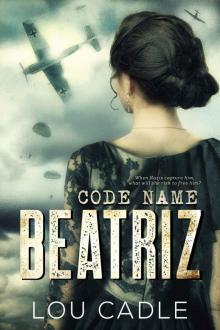 Code Name- Beatriz
Code Name- Beatriz Oil Apocalypse Collection
Oil Apocalypse Collection A Dawn of Mammals Collection
A Dawn of Mammals Collection Killer Pack (Dawn of Mammals Book 4)
Killer Pack (Dawn of Mammals Book 4)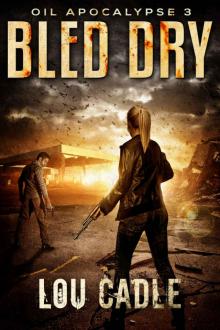 Bled Dry
Bled Dry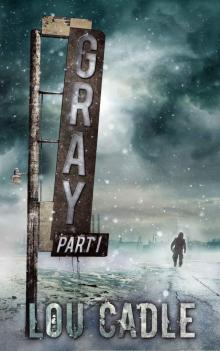 Gray (Book 1)
Gray (Book 1) Dawn of Mammals (Book 4): Killer Pack
Dawn of Mammals (Book 4): Killer Pack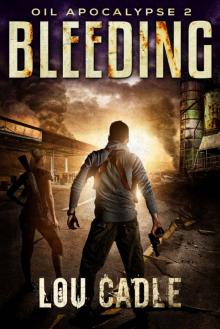 Bleeding (Oil Apocalypse Book 2)
Bleeding (Oil Apocalypse Book 2)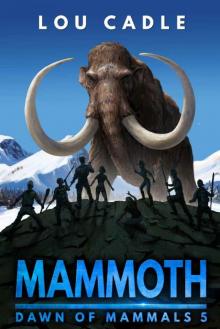 Dawn of Mammals (Book 5): Mammoth
Dawn of Mammals (Book 5): Mammoth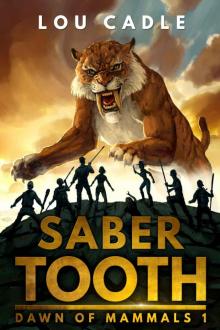 Saber Tooth (Dawn of Mammals Book 1)
Saber Tooth (Dawn of Mammals Book 1)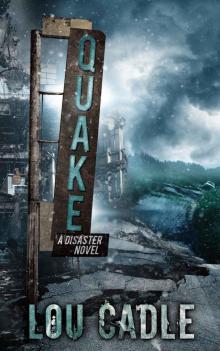 Natural Disaster (Book 2): Quake
Natural Disaster (Book 2): Quake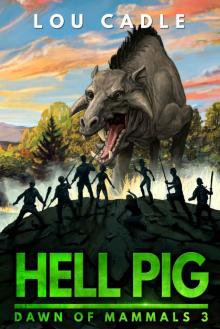 Hell Pig (Dawn of Mammals Book 3)
Hell Pig (Dawn of Mammals Book 3)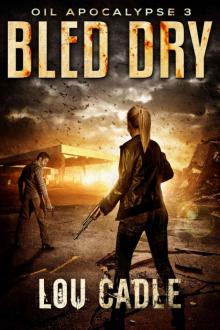 Bled Dry (Oil Apocalypse Book 3)
Bled Dry (Oil Apocalypse Book 3)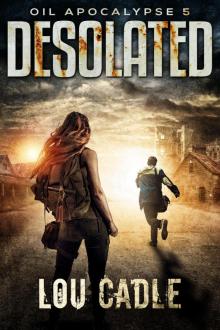 Desolated
Desolated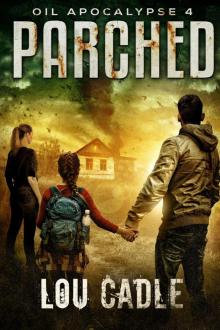 Parched
Parched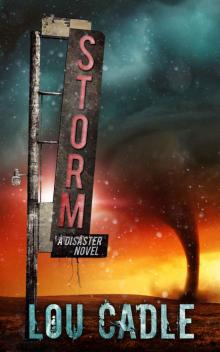 Natural Disaster (Book 3): Storm
Natural Disaster (Book 3): Storm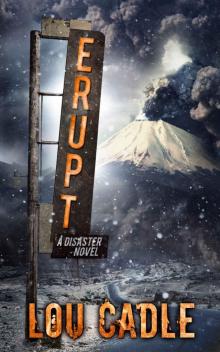 Natural Disaster (Book 1): Erupt
Natural Disaster (Book 1): Erupt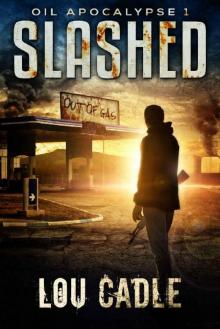 Slashed (Oil Apocalypse Book 1)
Slashed (Oil Apocalypse Book 1)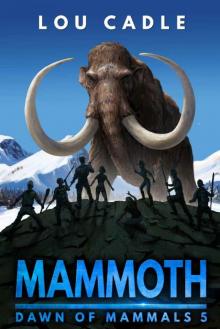 Mammoth (Dawn of Mammals Book 5)
Mammoth (Dawn of Mammals Book 5)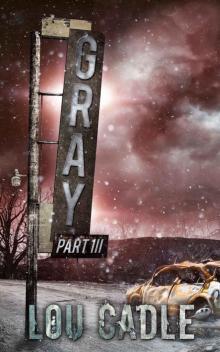 Gray (Book 3)
Gray (Book 3)